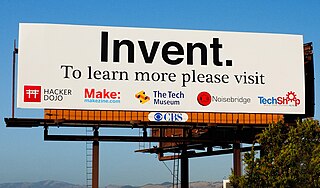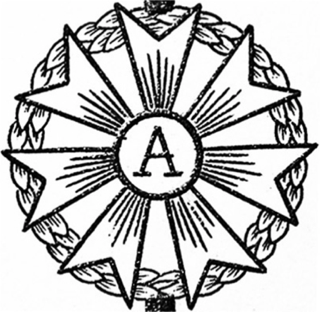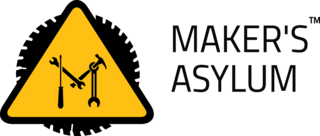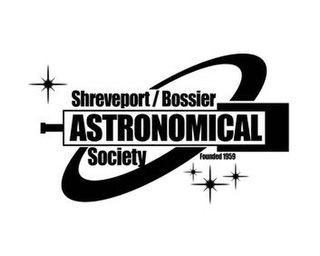A service club or service organization is a voluntary nonprofit organization where members meet regularly to perform charitable works either by direct hands-on efforts or by raising money for other organizations. A service club is defined firstly by its service mission and secondly its membership benefits, such as social occasions, networking, and personal growth opportunities that encourage involvement.

The Alma Mater Society of the University of British Columbia Vancouver, otherwise referred to as the Alma Mater Society or the AMS, is the student society of UBC Vancouver and represents more than 58,000 undergraduate and graduate students at UBC's Vancouver campus and their affiliated colleges. The AMS also operates student services, businesses, resource groups and clubs. The AMS is a non-profit organization that exists to advocate for student viewpoints and ensure the needs of students are met by the University Administration and the Provincial and Federal governments. The Alma Mater Society is composed of a number of constituency organizations for undergraduate students, and works closely with the Graduate Student Society of UBC.
Markham Public Library (MPL) is a library system operated by the municipal government of the City of Markham in Canada. There are eight branches in the city, serving about 250,000 residents in Markham. The libraries are managed by the Administration Centre, located at 6031 Highway 7.
The Association for Unmanned Vehicle Systems International, also known as AUVSI, is an international nonprofit organization dedicated to promoting and supporting the unmanned systems and robotics industry through communication, education and leadership.

A hackerspace is a community-operated, often "not for profit", workspace where people with common interests, such as computers, machining, technology, science, digital art, or electronic art, can meet, socialize, and collaborate. Hackerspaces are comparable to other community-operated spaces with similar aims and mechanisms such as Fab Lab, men's sheds, and commercial "for-profit" companies.

Fire safe councils are grassroots community-based organizations in California which share the objective of making communities less vulnerable to catastrophic wildfire. Fire safe councils accomplish this objective through education programs and projects such as shaded fuel breaks or firebreaks to protect area residents against an oncoming wildfire and to provide fire fighters with a place to fight the oncoming fire. The first fire safe councils started in the early 1990s, and there are now over 100 around the state.

The Alabama State Bar is the integrated (mandatory) bar association of the U.S. state of Alabama.
The name California Fire Safe Council (CFSC) has been used for two very different organizations. The original use of the name, from 1993 through mid-2002, referred to a loose consortium of local community-based fire safe councils and other organizations that shared the mission of making California's communities less vulnerable to catastrophic wildfire. It was funded by the state of California Resources Agency, Department of Conservation, Division of Forestry, also called CDF or CAL FIRE. It was led by staff from the CDF Prevention Bureau.
Do-it-yourself biology is a growing biotechnological social movement in which individuals, communities, and small organizations study biology and life science using the same methods as traditional research institutions. DIY biology is primarily undertaken by individuals with extensive research training from academia or corporations, who then mentor and oversee other DIY biologists with little or no formal training. This may be done as a hobby, as a not-for-profit endeavour for community learning and open-science innovation, or for profit, to start a business.

The maker culture is a contemporary subculture representing a technology-based extension of DIY culture that intersects with hardware-oriented parts of hacker culture and revels in the creation of new devices as well as tinkering with existing ones. The maker culture in general supports open-source hardware. Typical interests enjoyed by the maker culture include engineering-oriented pursuits such as electronics, robotics, 3-D printing, and the use of computer numeric control tools, as well as more traditional activities such as metalworking, woodworking, and, mainly, its predecessor, traditional arts and crafts.

Established in 1910, the Aurelian Honor Society ("Aurelian") is the fifth oldest landed secret society at Yale University in New Haven, Connecticut. It is a member of the Ancient Eight, which also includes Skull and Bones, Scroll and Key, and other "Sheff Societies" such as Book and Snake, Myth and Sword, and Berzelius.

The Center for Sex Positive Culture (CSPC), formerly known as The Wet Spot, is a non-profit, membership-based organization located in Seattle, Washington. It organizes events and provides space for several different sex-positive subcultures, notably BDSM, swinging, and polyamory groups. CSPC welcomes people of all sexual identities and seeks to encompass all consensual sexual practices. The Center is a 501(c)(7) recreational club; its sister organization, the Foundation for Sex Positive Culture is a 501(c)(3) charitable/educational organization.

The Pasco County Library Cooperative (PCLC) is the public library system that serves all residents of Pasco County, Florida, and is a member of the Tampa Bay Library Consortium. The Pasco County Library System, as it was originally known, was established by county ordinance in 1980. In 1999, the Pasco County Public Library Cooperative was established as a result of an Interlocal Agreement between the Pasco County Board of County Commissioners and the Zephyrhills City Council. It consists of seven branch libraries and one cooperative partner library, Zephyrhills Public Library. The Pasco County Libraries operate on a budget of $6,344,041 for fiscal year 2016. Pasco Libraries circulated 1,195,649 items for fiscal year 2016; up-to-date statistical information can be found on their website at: http://www.pascolibraries.org/stats/ The head of library services reports to the Assistant County Administrator for Public Services.

A library makerspace, also named Hackerspace or Hacklab, is an area and/or service that offers library patrons an opportunity to create intellectual and physical materials using resources such as computers, 3-D printers, audio and video capture and editing tools, and traditional arts and crafts supplies. In the field of library science, makerspaces are classified as a type of library service offered by librarians to patrons.

Ottawa Tool Library (OTL) is a not for profit tool lending public library system based in Ottawa, Ontario, Canada. Tool libraries loan specialized tools for both experienced and inexperienced community members who are interested in home repair, maintenance, building projects, community projects, gardening and landscaping as well as cooking. The OTL offers standard, group, individual and gift memberships.

Maker's Asylum is a makerspace / hackerspace in Mumbai and New Delhi, inspired by Artisan's Asylum, Chaos Computer Club and other maker organizations. According to the Maker's Asylum's website, "Maker’s Asylum is a community makerspace with two locations, Mumbai and Delhi, India. For hardware entrepreneurs, it’s easy access to tools, technology and talent so they can prototype their ideas. For problem solvers, it’s a space to bump ideas with other like and unlike-minded folks who share your passion. For hobbyists, it’s a place to play. Don’t let those ideas die on the drawing board. Make it real."

The Shreveport-Bossier Astronomical Society, Inc. is a 501(c)(3) tax-exempt organization and one of the oldest continuously meeting astronomy clubs in the United States of America. Originally named the Shreveport Junior Astronomical Society, it was founded in 1959 by a group of high school students led by a fellow student, Sara Worley. Fifteen people attended an organizational meeting to establish a club on October 10, 1959. Officers were elected at this meeting and Sara Worley became the first president of the Shreveport Junior Astronomical Society. A second organizational meeting took place on October 17, 1959, where a constitution and additional society-related details were established. The constitution was approved, signed, and ratified at a third meeting on October 24, 1959, although there was no State of Louisiana charter. The first public meeting of the club was held on November 14, 1959 at Centenary College of Louisiana. Two goals were announced: build an observatory and procure a planetarium for the Shreveport area. Within five years, these two goals were accomplished through local participation and fundraising.
Port City Makerspace is a makerspace in Portsmouth, New Hampshire. It has been running since 2012, when it was first founded by a group of three graduates from Green Mountain College. Today it is a non-profit with 8,000 square feet (740 m2) of space dedicated to wood-working, welding, electronics work, and automotive and bicycle repair.
Maker education closely associated with STEM learning, is an approach to problem-based and project-based learning that relies upon hands-on, often collaborative, learning experiences as a method for solving authentic problems. People who participate in making often call themselves "makers" of the maker movement and develop their projects in makerspaces, or development studios which emphasize prototyping and the repurposing of found objects in service of creating new inventions or innovations. Culturally, makerspaces, both inside and outside of schools, are associated with collaboration and the free flow of ideas. In schools, maker education stresses the importance of learner-driven experience, interdisciplinary learning, peer-to-peer teaching, iteration, and the notion of "failing forward", or the idea that mistake-based learning is crucial to the learning process and eventual success of a project.

SteamHead is a non-profit organization whose stated goal is to "increase the presence of design in education". SteamHead claims inspiration from the Maker movement and S.T.E.A.M. education. Initiatives credited to SteamHead aim to help communities increase their capacity to "make". Activities are supported sponsors including the British Council, local charities, and schools. The organization supports local events including MakeFashion Edu and School Maker Faires.













